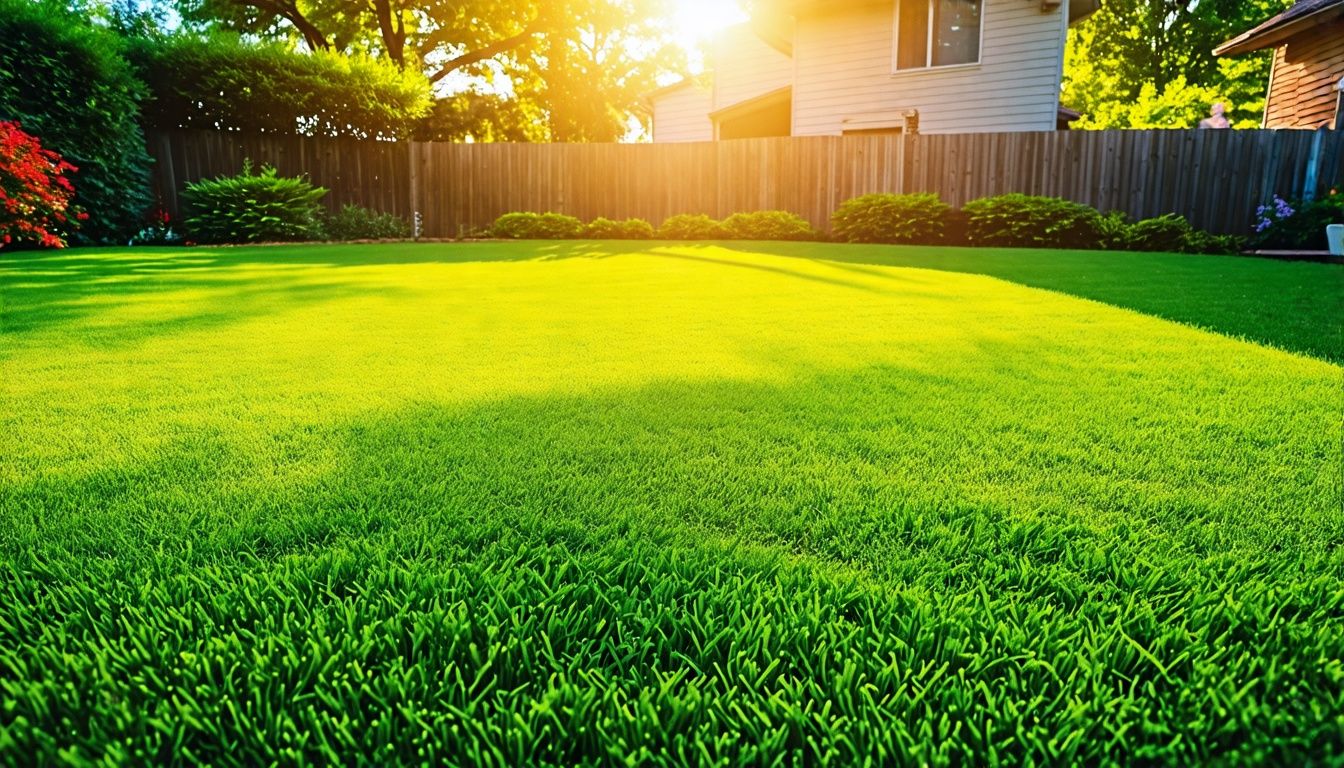
The Importance of Professional Lawn Care: Why You Should Care
Understanding the Art and Science of Lawn Maintenance
Lawn care is not merely a chore; it is a complex interplay of art and science that demands an understanding of botanical health, environmental conditions, and creative landscape design. Professional lawn care companies blend horticultural knowledge with practical skills to ensure your lawn thrives. They consider factors such as soil composition, grass type, climate, and even local pest populations to tailor their services for optimal growth and aesthetic appeal. The science behind lawn maintenance lies in understanding how different species of grass interact with nutrients, water, and sunlight, while the art aspect pertains to the strategic design and aesthetics to create a visually pleasing environment. This dual approach fosters not only a lush green lawn but also enriches the soil, encourages biodiversity, and establishes a sustainable ecosystem in your yard.
How a Healthy Lawn Enhances Property Value
A well-maintained lawn serves as an attractive focal point for any property, greatly influencing its market value. Research has shown that curb appeal significantly affects a buyer’s first impression, with a healthy, vibrant lawn potentially increasing property value by up to 15%. Professional lawn care not only enhances appearance but also contributes to environmental health by reducing soil erosion, improving air quality, and providing habitats for various organisms. Moreover, a carefully cultivated lawn can offer if not an outright financial return on investment, then at least a salable appeal that enhances the likelihood of your home being chosen during property searches. When the time comes to sell, the money invested in professional lawn care can lead to quicker sales and higher bids, transforming what might have been an arduous process into a favorable outcome.
Choosing the Right Lawn Care Company: Making an Informed Decision
Key Questions to Ask Before Hiring Your Lawn Care Team
Selecting a lawn care company involves more than just comparing prices; it’s about finding a partner who understands your unique needs and aligns with your landscaping visions. Start by asking about their qualifications and experience—how long have they been in business? Are they licensed and insured? Inquire about the specific services they offer and whether they provide customized care plans tailored to your lawn’s specific requirements. Another pivotal question is about their approach to chemical usage; eco-friendly practices are increasingly important to homeowners who are environmentally conscious. Furthermore, check for client testimonials or reviews; insights from other customers can reveal trends regarding reliability, service quality, and customer satisfaction. Lastly, always ask for a detailed estimate that breaks down the costs associated with their services to help gauge whether the company’s offerings fit your budget.
The Importance of Local Expertise in Lawn Care
Local expertise in lawn care is invaluable, as it entails an understanding of the specific environmental challenges, soil characteristics, and climatic conditions unique to your region. For instance, a lawn care company with local experience will know which grass types are most resistant to local pests and diseases, thus offering your lawn the best chance for resilience and beauty. They will also be familiar with local ordinances that govern landscaping, chemical use, and waste management, ensuring compliance while providing top-notch service. Furthermore, local companies are adept at discerning the seasonal needs of your lawn, thus optimizing care packages throughout the year. This localized knowledge is critical not only for immediate aesthetics but for long-term health and sustainability, making it a non-negotiable factor in your selection process.
Services Offered by Lawn Care Companies: What to Expect
From Mowing to Fertilization: A Deep Dive into Lawn Care Services
A comprehensive lawn care program typically encompasses a variety of essential services. Mowing is often the most basic offering, yet it’s executed with a profound understanding of different mowing heights and frequency based on grass type and season. Subsequently, fertilization is a crucial element, one that requires an understanding of nitrogen, phosphorus, and potassium levels in your soil. Professional lawn care services will perform soil tests to evaluate nutrient deficiencies and may recommend tailored mineral blends that cater specifically to your lawn’s needs at different growth stages.
In addition to these primary services, reputable lawn care companies commonly provide aeration, overseeding, weed control, and pest management. Aeration allows air and nutrients to penetrate the soil more efficiently while overseeding can rejuvenate thin areas or introduce more resilient grass varieties. It’s essential that weed control methods vary from chemical approaches to natural solutions, depending on your preferences and sustainability goals. Pest management strategies will focus on environmentally friendly practices, integrating pest monitoring and prevention tactics to maintain your lawn’s health without damaging the overall ecosystem.
Beyond the Basics: Specialty Treatments for Your Unique Yard Needs
While mowing and fertilization are foundational, the lawn care landscape includes various specialty treatments designed to address specific challenges or enhance your lawn’s appearance. This includes treatments such as thatch removal to prevent soil compaction, insect and disease management systems tailored to combat specific threats like grubs or fungal infections, and tailored irrigation solutions that prioritize water efficiency while ensuring your plants receive adequate hydration. Additionally, many companies offer sod installation and landscaping services that can transform not only your lawn but the overall look of your property.
As climate patterns shift and native ecosystems evolve, companies may also offer adaptive services that focus on drought-resistant varieties or xeriscaping principles, promoting water conservation while maintaining a vibrant landscape. Recommendations for soil improvement such as the addition of compost or organic materials will also help create a sustainable solution that simultaneously enhances both beauty and ecological health. This comprehensive approach positions you not only for immediate satisfaction but for long-term success.
Maximizing Your Lawn’s Potential: Tips and Tricks for Homeowners
Seasonal Lawn Care Strategies for Year-Round Beauty
Homeowners looking to maximize their lawn’s potential need to align their care strategies with seasonal changes. In spring, the focus should be on revitalizing the lawn after winter dormancy; this includes aeration, overseeding, and fertilization to promote vigorous growth. As temperatures rise in summer, maintaining adequate watering routines is crucial to prevent drought stress, while strategic mowing practices—such as raising the mower height—ensure that grasses remain healthy and lush.
Autumn is another pivotal time for lawn care; fall fertilization can be incredibly beneficial, and overseeding can promote density and vitality heading into the cooler months. Finally, winter preparation often involves simple clean-up tasks that can protect grass and soil health. Mulching leaves and ensuring that debris does not smother the lawn will reduce physically damaging conditions that can foster pests. With a proactive seasonal approach, homeowners can ensure that their lawns remain healthy and visually appealing throughout the year.
Nurturing Your Lawn Between Professional Visits: DIY Tips for Homeowners
Even if you engage a professional lawn care company, there are numerous steps homeowners can take to nurture their lawns between visits. Regular monitoring of your lawn for pests, diseases, and communication with your lawn care service can keep you informed of changes. You can maintain a smart watering schedule, ideally focusing on early morning hours to minimize evaporation and ensure your grass absorbs moisture optimally. Understanding basic mowing techniques can further enhance your lawn’s health; for example, never cutting more than a third of the blade height during any one mowing session can minimize stress on grass.
Lastly, DIY lawn care isn’t only limited to maintenance; incorporating organic practices such as mulch application or composting lawn clippings creates a sustainable loop of natural nutrients. This not only enriches your soil but also minimizes waste, providing a holistic approach to yard care. By integrating these practices into your routine, you complement professional efforts, ultimately leading to a healthier and more vibrant lawn.





